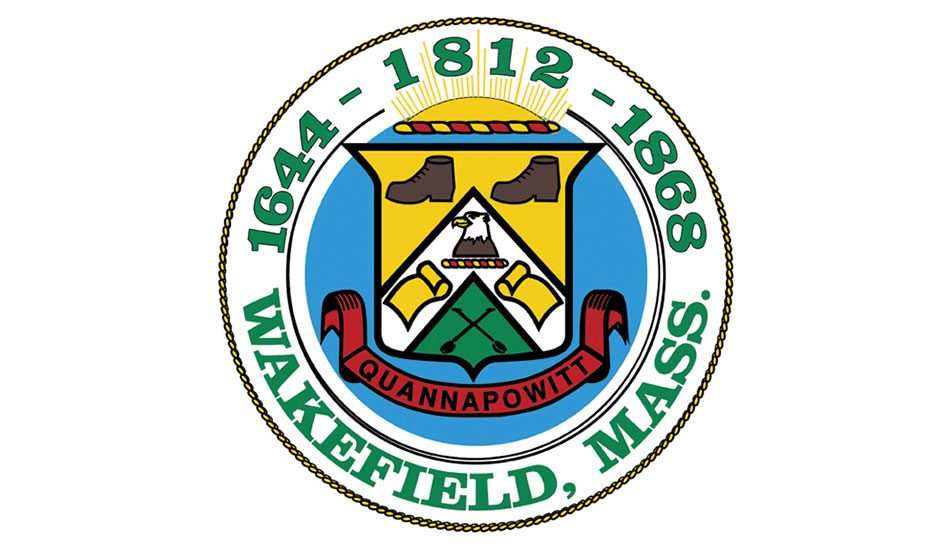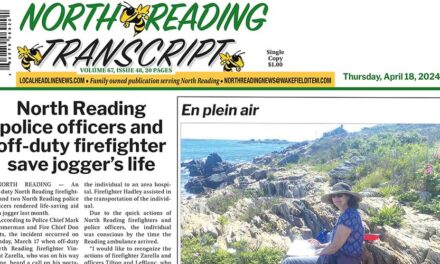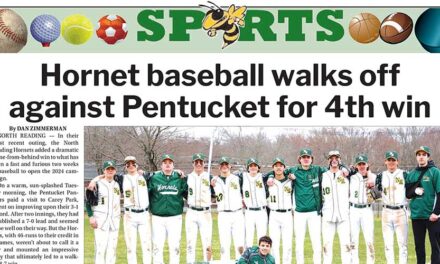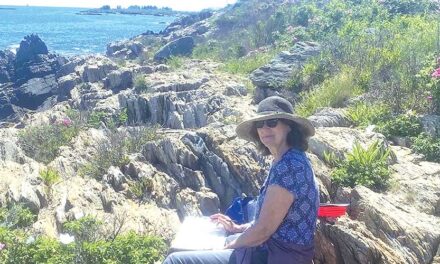By MARK SARDELLA
WAKEFIELD — A proposed policy aimed at addressing how the local tax levy is set is under consideration by the Town Council.
Councilor Jonathan Chines, who drafted the policy along with Town Administrator Stephen P. Maio, said this week that the purpose of the policy was to create guidance for current and future Town Councils and assure that the tax levy supports the budget approved by Town Meeting and maintains the town’s AAA bond rating.
If approved, the policy would be appended to the town’s existing financial policies. But not all councilors were on board with the proposed new policy, which assumes the maximum 2 1/2 percent increase in the tax levy as a starting point, unless certain very specific conditions are met.
“The Town Council shall approve an annual tax levy increase of 2.5 percent unless the following conditions are met,” the policy states. Those conditions are listed as follows:
1. The projected combined balance of the Reserve Fund, Stabilization Fund, and Free Cash is at least 10 percent of General Fund operating revenue, not including debt exclusions, self-supporting enterprise funds, and Chapter 70 school aid.
2. Tax-financed capital projects are at least 4 percent of General Fund operating revenue, not including debt exclusions, self-supporting enterprise funds, and Chapter 70 school aid.
3. The operating budget adequately funds Pension and Other Postemployment Benefit (OPEB) obligations according to the funding schedule approved by the Commonwealth of Massachusetts Public Employee Retirement Administration Commission (PERAC).
4. The operating budget is balanced without using funds from the Stabilization Fund and/or Free Cash, or if such funds are used, that the projected combined balance of the Reserve Fund, Stabilization Fund, and Free Cash remains at least 10 percent of General Fund operating revenue.
If those conditions are met, the proposed policy states, the Town Council shall set the tax levy increase according to the following formula:
1. Start with the 2.5 percent levy increase limit established by Proposition 2½.
2. Subtract the total projected budget surplus for the current fiscal year, if applicable.
3. Subtract the combined balance of the Reserve Fund, Stabilization Fund, and Free Cash that exceeds 10 percent of General Fund operating revenue, not including debt exclusions, self-supporting enterprise funds, and Chapter 70 school aid.
4. If the above formula results in a tax levy increase that is less than 0 percent, the Town Council shall set the levy increase at 0 percent, and allocate excess funds to Capital Expenditures and/or Debt Service.
But several Town Councilors had concerns about the proposed new policy.
“I don’t see a scenario under these policies where we wouldn’t be taxing to the max,” Councilor Michael McLane said. “It takes away the flexibility of the Town Council to offer tax relief.”
Town Councilor Edward Dombroski agreed. He thought that a better approach would be to start with a 0 percent increase in the tax levy, unless otherwise justified.
“Every Town Council should be able to assess the the situation on the ground at the time,” he said. “I can’t support starting with a 2 1/2 percent increase unless certain conditions are met. Every year we should take a hard look at our budgeting before we start at 2 1/2 percent.
“There is no one-size-fits-all,” he added, pointing out that the Town Council would be free to take the approach proposed in the policy without having it proscribed.
Town Councilor Robert Vincent was also skeptical, noting that as the newest Town Councilor elected just last April, he has not had the experience of going though the full town budgeting process.
Vincent also noted that over the last nine years, no other Town Council has felt the need to amend its Financial Polices, which were created in 2013.
Councilor Anne Danehy said that she thought that the policy would “help us look at long-term planning.”
But McLane pointed out that the town is changing. “I don’t want to take away the Town Council’s ability to look at one year at a time,” he said.
From 2014 through 2019, the Board of Selectmen did not increase the tax levy by the full 2 1/2 percent allowed under Prop. 2 1/2. In 2016, the selectmen increased the tax levy by only 1.5 percent.
Councilors were asked to further consider the policy and contact Town Administrator Maio with any suggested changes or edits in advance of a future vote.





